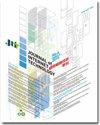An Approach to Improve Efficiency of Traditional Automated Trust Negotiation Strategies
IF 1.2
4区 计算机科学
Q4 COMPUTER SCIENCE, INFORMATION SYSTEMS
引用次数: 0
Abstract
Automated trust negotiation (ATN) is a successful approach to establishing mutual trust between strangers wishing to share resources or conduct business by gradually requesting and disclosing digitally signed credentials. An ATN strategy need to be adopted to determine a successful negotiation sequence based on the access control policies. Traditional ATN strategies provide the maximum degree of protection to the involved resources. However, there can be cases where efficiency is the most crucial need especially in light of widespread use of mobile device. It is preferable to adopt highly efficient ATN strategies, even if they do not maximize the protection of involved resources. Thus in this paper, we propose an approach to improve efficiency of traditional negotiation strategies by integrating sequence prediction, making a trade-off between negotiation efficiency and sensitive information protection. We validate the effectiveness of our approach by performing experiments on a mobile platform, taking the representative traditional negotiation strategy PRUENS as an example. Our experimental results show that our approach dramatically enhances efficiency of PRUNES.一种提高传统自动信任协商策略效率的方法
自动信任协商(ATN)是一种在希望共享资源或开展业务的陌生人之间建立相互信任的成功方法,通过逐步请求和披露数字签名凭证。需要采用ATN策略,根据访问控制策略确定协商成功的顺序。传统的ATN策略为相关资源提供最大程度的保护。然而,在某些情况下,效率是最重要的需求,尤其是在移动设备广泛使用的情况下。最好采用高效的ATN策略,即使它们不能最大限度地保护所涉及的资源。因此,本文提出了一种整合序列预测的方法,在协商效率和敏感信息保护之间进行权衡,以提高传统协商策略的效率。以具有代表性的传统协商策略PRUENS为例,在移动平台上进行了实验,验证了该方法的有效性。实验结果表明,该方法显著提高了PRUNES的效率。
本文章由计算机程序翻译,如有差异,请以英文原文为准。
求助全文
约1分钟内获得全文
求助全文
来源期刊

Journal of Internet Technology
COMPUTER SCIENCE, INFORMATION SYSTEMS-TELECOMMUNICATIONS
CiteScore
3.20
自引率
18.80%
发文量
112
审稿时长
13.8 months
期刊介绍:
The Journal of Internet Technology accepts original technical articles in all disciplines of Internet Technology & Applications. Manuscripts are submitted for review with the understanding that they have not been published elsewhere.
Topics of interest to JIT include but not limited to:
Broadband Networks
Electronic service systems (Internet, Intranet, Extranet, E-Commerce, E-Business)
Network Management
Network Operating System (NOS)
Intelligent systems engineering
Government or Staff Jobs Computerization
National Information Policy
Multimedia systems
Network Behavior Modeling
Wireless/Satellite Communication
Digital Library
Distance Learning
Internet/WWW Applications
Telecommunication Networks
Security in Networks and Systems
Cloud Computing
Internet of Things (IoT)
IPv6 related topics are especially welcome.
 求助内容:
求助内容: 应助结果提醒方式:
应助结果提醒方式:


